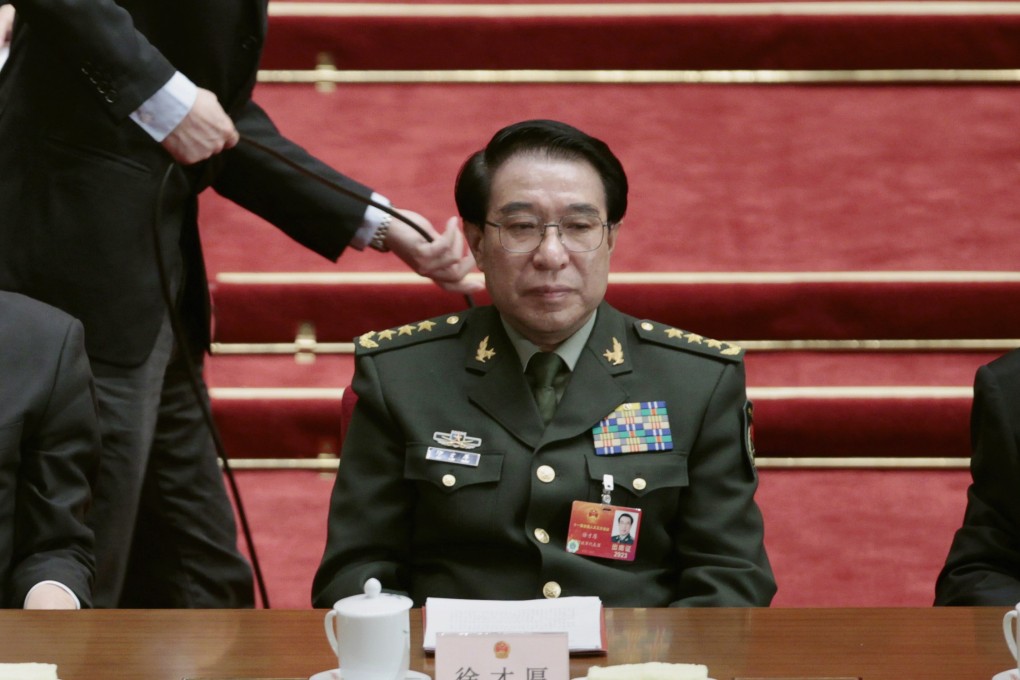Xu Caihou: the general who rose up the ranks but fell from grace
Xu Caihou climbed the military and party ladder before his demise in the anti-graft crackdown

Xu Caihou, the disgraced former People's Liberation Army senior leader, died of bladder cancer on Sunday at age 71.
Xu, who as a former vice-chairman of the Central Military Commission (CMC) was the PLA's second-in-command, was facing prosecution for corruption after coming under investigation last year. He was the most senior PLA general to be investigated for graft in the Communist Party's history.
In a brief report issued late on Sunday, Xinhua said military prosecutors had decided to drop the charges against the general, but would continue to process his alleged illicit financial gains in accordance with the law.
Xu was expelled from the party in June. When military prosecutors wrapped up their investigation of him in October, state media said his alleged crimes included abuse of power, accepting bribes directly or via family members in exchange for promotions, and advancing the interests of those close to him through the powers of his office.
Media reports suggested that it took investigators a week to catalogue the cash, jade, gems, paintings and rare antiques found in Xu's 2,000 sq m Beijing residence, before hauling the items away in 12 trucks.
Analysts said Xu's dramatic downfall revealed the extent of buying and selling of military ranks, raising questions about the combat readiness of the world's biggest army.